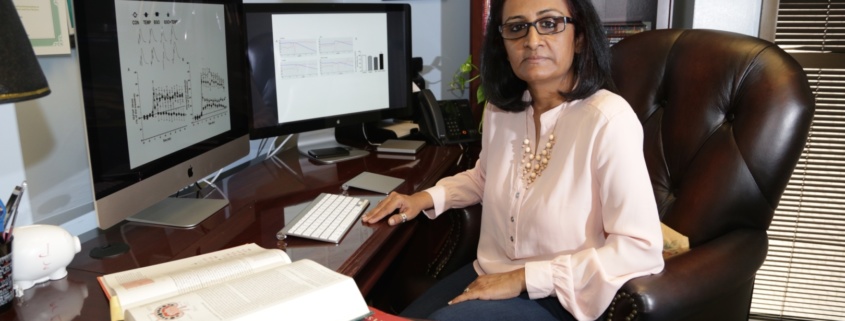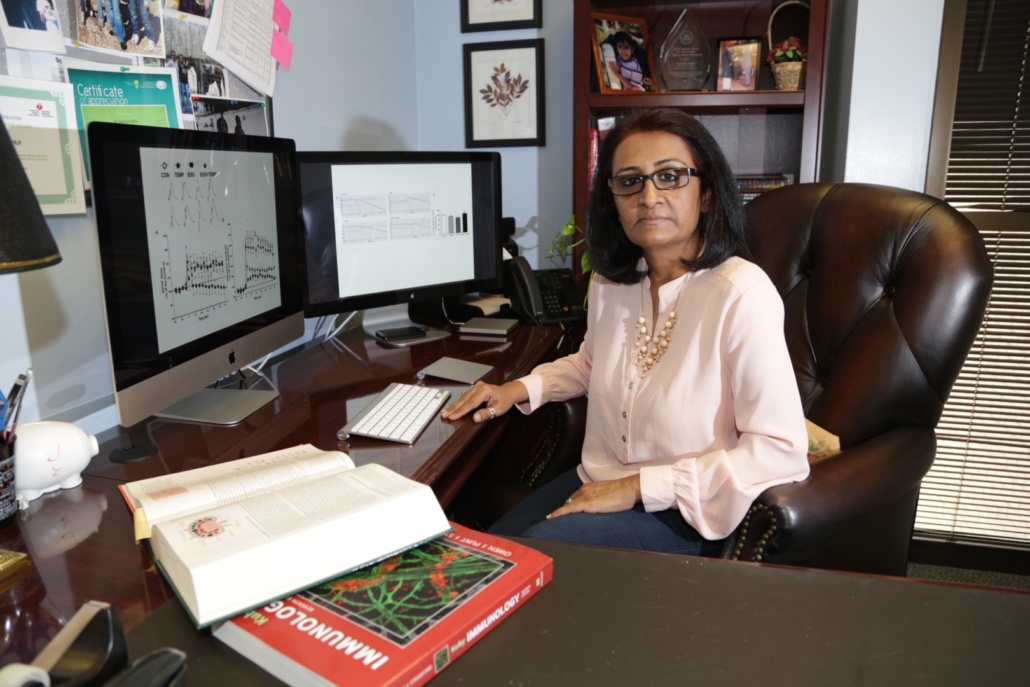Hate, hurt and healing: Pharmacology professor questions if we are ready to let go of hate
The news is grim, highlighting the heavy toll of American lives lost to COVID-19. The current stats are followed by the usual news of crime, violence and a whole lot of hate.
I switched off the television and instead looked out of the window to admire the elegance of the magnolia tree in the backyard.
Truly, hate is suffocating and nature is liberating.
I, like so many of us, dream of a hate-free world in which everyone is kind, considerate, honest and full of love. In reality everyone seems angry, hateful, insecure, hurt, upset and annoyed.
We are a society that has learned to hate the “other” so much, that we have almost normalized hate and discarded reconciliation.
Peace seems a scarce option and often considered a virtue of the weak. I believe that we have reached a point where the fatigue of hate is consuming us all. Clearly, hate is not geographically defined.
Racism in America, drug violence in South America, Syrian refugee crisis in the Middle East, Rohingya desperation in Myanmar, lynching in India and Uyghur plight in China top the diary of present day hatred in addition to our daily dose of divisive and hateful American politics.
The baggage of hurt we have accumulated over the years is weighing heavy. Another George Floyd could easily push us to complete numbness or full crazy. We hear and see hate after hate and move on, unaware that the subconscious stores the hurt, leaving a weary soul.
We don’t talk about this for fear of being judged and be seen as vulnerable and controversial. So we continue to be oblivious to everything and the burden gets heavier and heavier, denting our psyche in ways that we often fail to notice.
Whether it is racism, communalism or fascism, it is fear and mistrust of the “other” that triggers the feelings of superiority, eventuating into hatred as a habit. Habits are hard to break.
It is comforting that efforts are being made to address hate and stop discrimination. Agreeably, this is no easy fix. Recognition of injustice and suffering, cultivation of love and trust takes time. Token initiatives won’t do it. Workshops and webinars are insufficient.
If we truly intend on addressing hate, the first step is to explore our own emotions, share our vulnerabilities and make sincere attempts to engage. Opening up to friends and neighbors will serve as an important precursor to meaningful conversations.
Healing requires an accepting environment where one could address hurt, both personal and societal. Are we ready to build that environment?
Can we acknowledge and respect each other’s differences? Can we listen with compassion and curiosity? Can we honor and appreciate each other’s opinion without branding anyone?
If yes, healing is accessible and peace is reachable.

















2020
881 views
views
0
comments